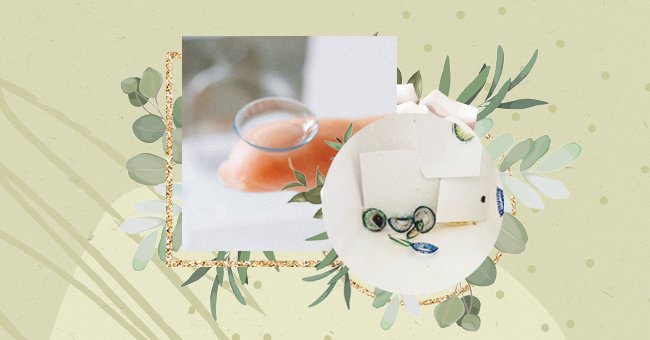
A Comprehensive Guide To Safely Wearing & Caring For Your Contact Lenses
If you wear contact lenses, do you know if you are properly caring for them? Can abusing them affect your vision? We ask an optometrist for advice.
Contact lenses were designed to fit over the eye to allow those with visual impairments to see without glasses. Nowadays, people are wearing these lenses to change the color of their eyes for aesthetic purposes.
People wear contact lenses because of their convenience. Still, they may not be for everyone, especially for those who have dry-eye or get frequent eye infections. If you use contact lenses, whether daily or occasionally, it's vital that you know how to use them and clean them correctly.
"you need to thoroughly clean your case and contacts when you swap out your lenses for a new pair, and after each use, the solution should be changed."
says Optician Sameera Hajat
Not Cleaning Lenses Properly After Heavy Makeup Use
"many people come to me with eye infections caused by makeup that has infected their contact lenses,"
says Sameera
You should always thoroughly remove your makeup by double cleansing using an oil balm and then a face wash. Otherwise, makeup residue can get infected from sweat and bacteria from your face. Your eyelashes are a breeding ground for these infections, as many people struggle with removing their mascara. When these infections spread to the eye, they can infect your contacts.
Cleaning your contacts thoroughly after every use and especially after using heavy makeup can save you from getting an eye infection. Not taking care of your false eyelashes by not washing them thoroughly or using nail glue to apply your eyelashes can lead to severe eye infections. Avoiding these mistakes can prevent infections and keep your eye healthy, and save you the trouble of visual disturbances.
Sleeping With Your Contacts
Contacts were designed for short-term use; this means you wear them during the day or for short periods and remove them before you go to bed. But many people feel too tired or make the mistake of going to sleep with their contacts still on.
"your cornea gets oxygen from the environment, which is why there are no blood vessels in it,"
says Sameera
The cornea is the transparent part of the eye that allows you to see, and wearing contacts reduces the amount of oxygen to the cornea. Without enough oxygen, you are at risk for other diseases such as keratitis, which is inflammation of the cornea, and neovascularization, which is when blood vessels form in the transparent space to provide the oxygen that it is being deprived of.
"sleeping in contacts gives your eye no time to recuperate and significantly reduces the amount of oxygen to the cornea, which leads to hypoxia, neovascularization, severe dry eye, keratitis, and blurry vision," says Sameera
says Sameera
Wearing Expired Contacts
"contact lenses are a medical device that is stored in a solution; when the solution expires, it could either become too acidic or alkalinized."
says Sameera
Wearing contacts past the expiry date is dangerous. As the optometrist states, the solution can change from its lab-tested pH and disturbs the pH balance of your eye, leading to an eye infection.
Contacts made with advanced technology have oxygen channels, which allow your eye to get oxygen during use. Once expired, these oxygen channels can close, depriving your cornea of oxygen, and you don't want to destroy the part of your eye that allows you to see!
So the next time you use your contacts, be sure to read the instructions carefully. If some instructions are unclear, then ask your optometrist about it. Always take care of your contacts because they are going onto an organ of the body. Losing your vision can severely impact your life; take care of your eyes, please!